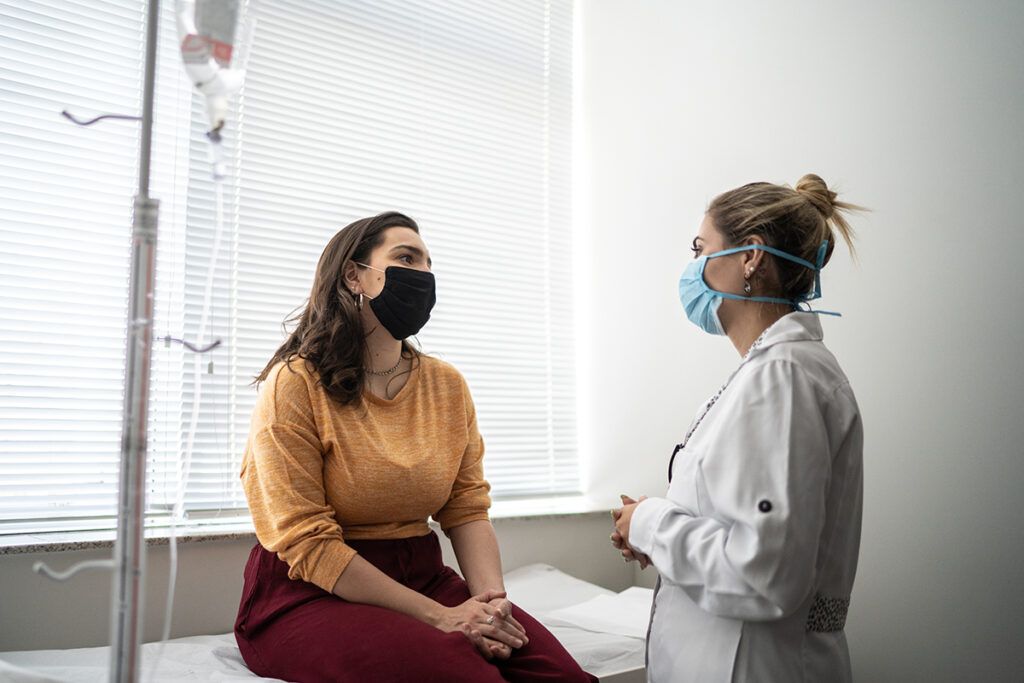Medically reviewed by Tahirah Redhead MPAS, PA-C, MPH on May 10, 2023
A pap smear, also known as a pap test, helps prevent cervical cancer by checking for the human papillomavirus (HPV). The test allows for a sample of cells to be collected from the cervix and tested for abnormalities. The cervix is the lower part of your uterus that connects to the top of your vagina.
A cervical screening will not test for cervical cancer. Instead, its goal is to prevent cancer by detecting any precancerous cells as early as possible.
What does the procedure involve?

The screening will be performed by a healthcare professional such as a doctor or nurse. Before the procedure, they will explain how the process will work and give you a chance to ask any questions.
As you need to be undressed from the waist down, the doctor or nurse will leave the room and provide you with a sheet to cover yourself with. After this, you will be asked to lie back on an examination table either with your legs bent, feet together, and knees apart or with your feet placed in stirrups on either side of the table.
The doctor or nurse performing the procedure will tell you when the test is going to start. They will then place a speculum inside of your vagina. A speculum is a medical instrument typically used to widen your vaginal walls and examine the cervix.
After this, your healthcare professional will gently swab the inside of your cervix with a small brush to collect a sample of cells that will then be sent for testing. The procedure will usually take 5 minutes, with the whole appointment generally lasting 10 minutes.
It can take up to 3 weeks to receive your test results after a cervical screening.
We use the term “women” in this article to reflect the term assigned at birth. However, gender is solely about how you identify yourself, independent of your physical body.
How often should you get a pap smear?
Several factors can influence when you should get tested, with the most common being your age. It is still important to regularly get a pap smear even if you are not sexually active.
The National Cancer Institute (NIC) recommends the following for cervical screening:
- 21–29 years: Anyone with a cervix should get tested from the age of 21 years. If your results come back without any cell abnormalities, then you should continue getting a pap smear every 3 years up until the age of 29 years.
- 30–65 years: Those between the ages of 30 and 65 years should continue with screening and are recommended to get tested through any one of the following cervical screening methods:
| Every 5 years | Get a HPV test |
| Every 5 years | Get a HPV and pap cotest |
| Every 3 years | Get a pap test, also known as a pap smear |
- Over 65: If you are over the age of 65 years and have regularly received test results that did not show abnormalities, then a healthcare professional may suggest that it is no longer necessary for you to continue getting tested.
The American Cancer Society issued updated guidelines in 2020 recommending how often someone should get cervical screening. The new guidelines suggest that screening before the age of 25 years is unnecessary. However, many health organizations have opposing views on whether screening should be done earlier than this, starting at age 21 years.
Speaking with a healthcare professional can help you decide what age may be best for you to begin cervical screening.
If you need help covering the cost of medications, the free Optum Perks Discount Card could help you save up to 80% on prescription drugs. Follow the links on drug names for savings on that medication, or search for a specific drug here.
